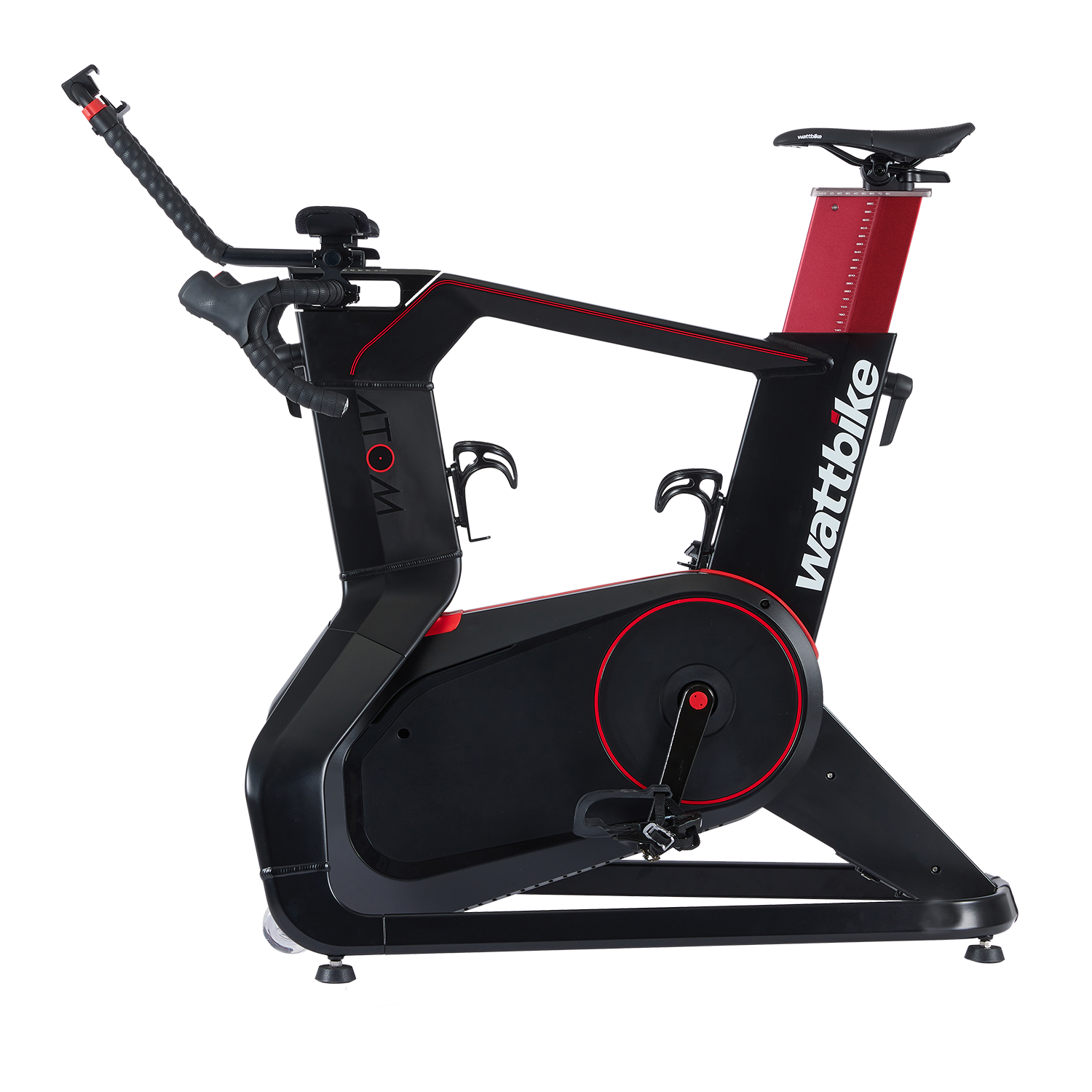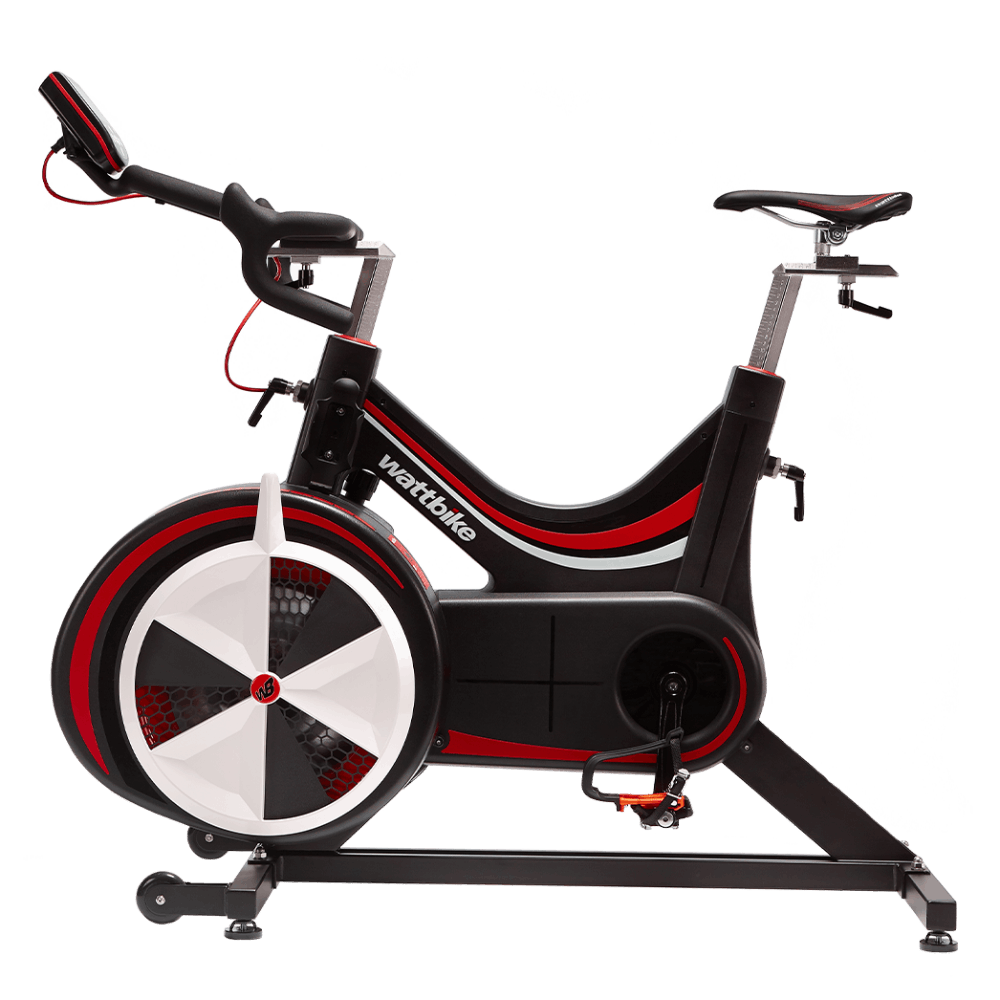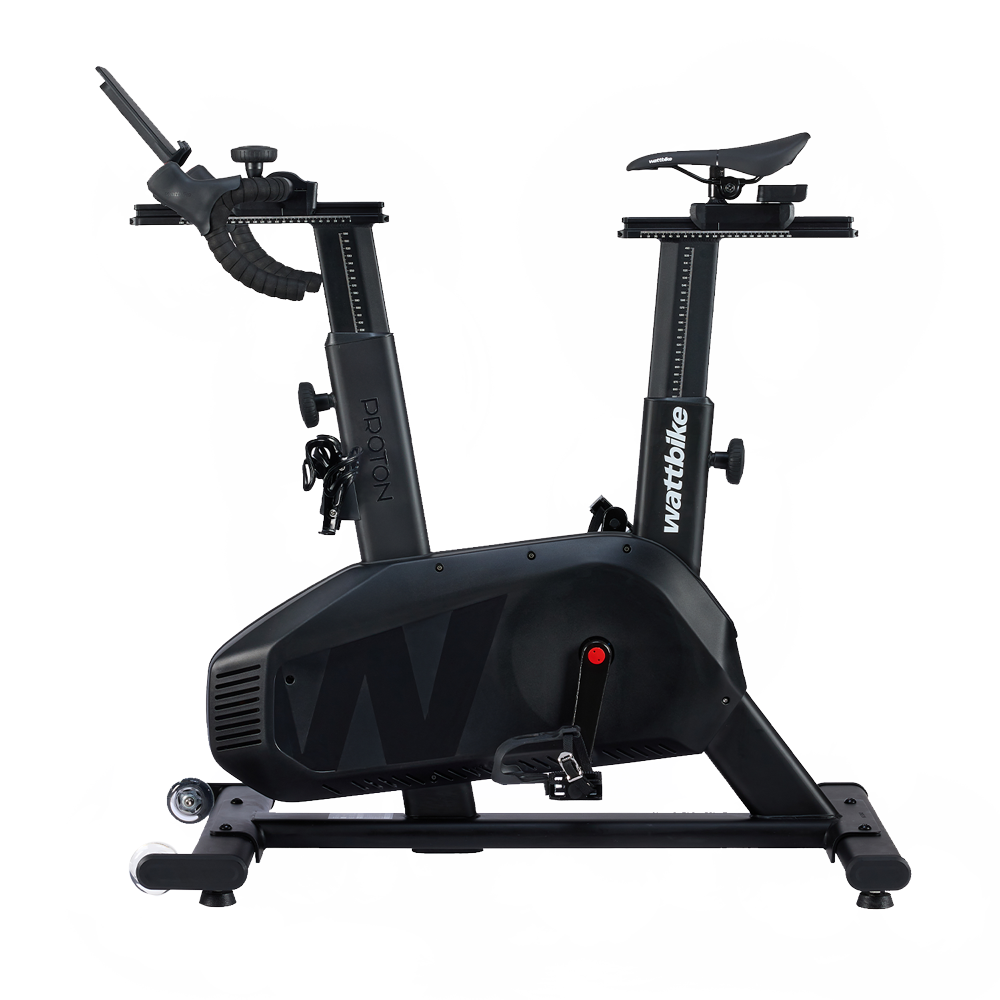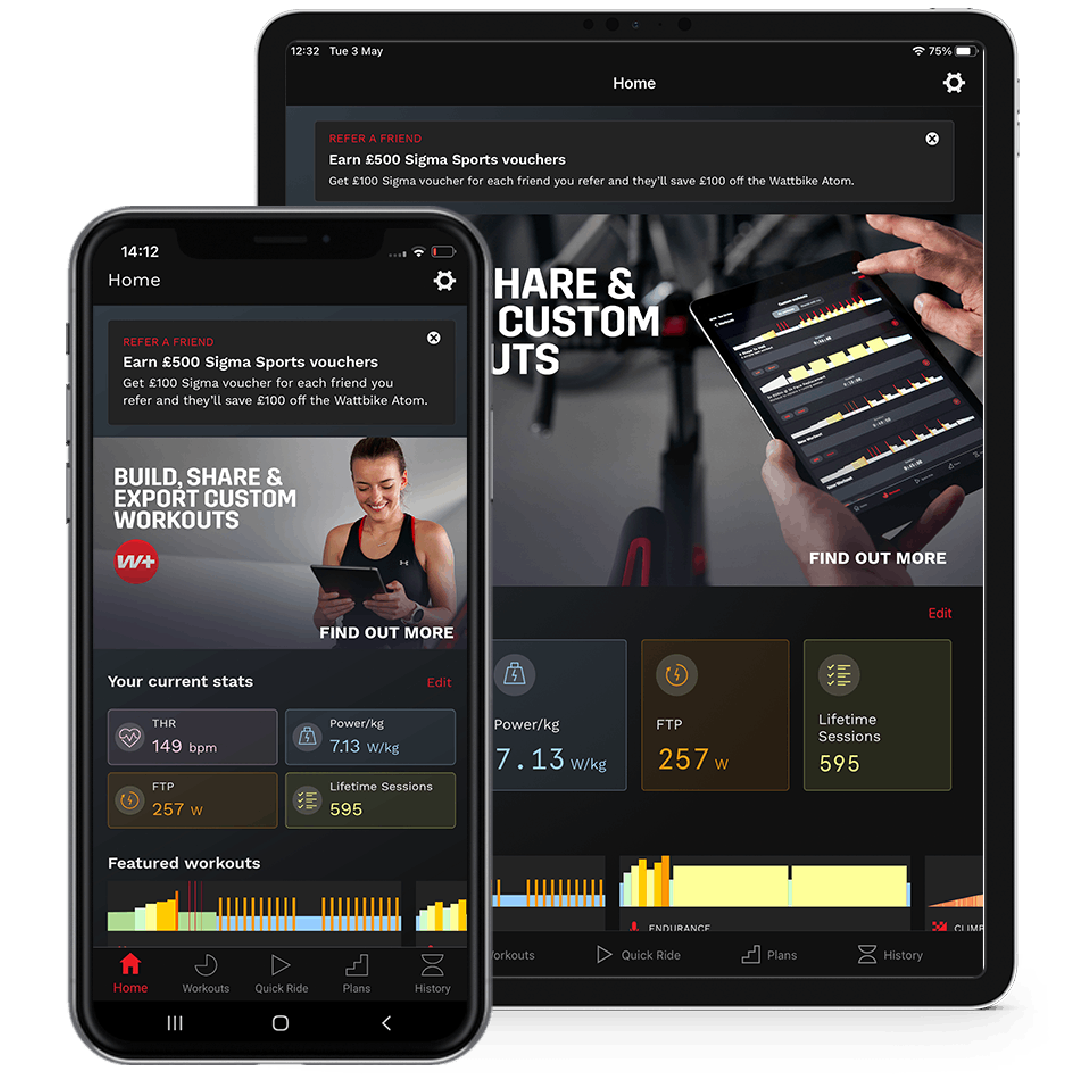Your Cart is Empty
shop
training & apps
support & services
news & information
Maximise Your Winter Running Performance with Wattbike Proton
September 16, 2025 3 min read
Why Winter Training Needs a Different Approach
Cold weather, darker evenings and icy pavements can make winter running a real challenge. But your progress doesn’t have to freeze. Training indoors on a Wattbike Proton helps runners maintain momentum during the colder months, building endurance, strength and running form in a safe, controlled environment. Cycling also reduces impact on joints, giving your legs a break from constant pounding while keeping your aerobic engine firing.

Transitioning Smoothly Indoors
If you’re new to cycling as a runner, shifting from seated to standing pedalling can feel awkward at first — just like adjusting to hill sprints after weeks of flat training. It takes time, but persistence pays off. Focus on the balance between resistance and cadence. Finding the right combination creates a fluid rhythm that makes winter Wattbike sessions feel natural and effective.
Managing Intensity During Winter Training
When you ride out of the saddle, you’re often working close to your functional threshold power (FTP). These efforts should be short, similar to interval sprints, while most of your indoor winter cycling should remain seated at a lower intensity with longer intervals. This approach preserves energy, builds an aerobic base, and avoids over-fatigue during months when recovery is already challenged by colder weather and lower daylight.
The Ideal Wattbike Proton Setup for Runners in Winter
Getting your Wattbike setup right is key to making winter cycling complement your running form. Here’s how to adjust each element for the best results:
1. Saddle Height
For an optimal running posture, set your saddle on the higher side of the cycling range. Aim for a slight downward point of the toes — just past horizontal — and ensure your knee almost straightens but never locks out. A knee angle of 145˚–150˚ is recommended. Watch your pelvis: it should barely shift side to side. If it rocks noticeably, lower the saddle slightly.
2. Saddle Fore-Aft Position
Most runners benefit from moving the saddle forward to better align the body with a running stance. Try to keep the saddle nose vertically in line with the bottom bracket. Taller runners may find moving the saddle slightly back more comfortable, while shorter runners often prefer it forward. Adjust until both seated and standing pedalling feel balanced and natural.
3. Handlebar Height
To mimic a running posture indoors, set the handlebars higher than the saddle. This encourages a more upright position, keeping body weight centred over your legs during out-of-saddle efforts. Lower bars will shift more load into your arms — sustainable for short bursts, but less comfortable for winter’s longer training blocks.
4. Handlebar Fore-Aft Position
Handlebar distance varies by height and comfort. Taller runners may prefer the bars positioned further forward for a slight lean, while shorter runners usually benefit from a closer reach. Adjust until your position mirrors your natural running stance, letting you ride efficiently without strain.

Tips for Out-of-Saddle Efficiency
-
Ease your cadence down over 5–10 seconds when standing to keep transitions smooth.
-
Use the right shifter to gradually increase resistance, aiming for 60–75 RPM.
-
If you’re above 120% FTP, shorten the interval and build stamina over time.
Keep Momentum All Winter
Winter doesn’t have to hold back your training. With the Wattbike Proton, you can replicate running posture, protect your joints, and continue building fitness from home — no matter the weather outside. By fine-tuning your setup and embracing indoor cycling, you’ll enter spring running season stronger, faster and ready to perform.
See why the Wattbike Proton is great for runners according to Sports Scientist, Dr Barney Wainwright
Explore the Wattbike Proton HERE
Checkout our Wattbike Hub workouts HERE
Find our bike set up for runners support article HERE
Also in Winter Training

Building an Engine for Success: How Kathryn Parnell Uses Wattbike to Train for HYROX and Marathons
November 06, 2025 3 min read
Endurance athlete Kathryn Parnell has transformed her training from the football pitch to the HYROX arena, using the Wattbike as the foundation of her success. After an ACL injury in 2022 ended her semi-professional football career with Ipswich Town and Colchester United, she turned to hybrid fitness - combining HYROX workouts, marathon training, and indoor cycling to build her endurance engine. Since buying her first Wattbike in 2017, Kathryn has relied on it for aerobic conditioning, zone 2 training, and winter sessions that keep her consistent, motivated, and race-ready year-round.
Whether preparing for the London Marathon, chasing new PBs, or building strength for HYROX competitions, the Wattbike remains her go-to training partner. A powerful, data-driven tool trusted by elite athletes to improve performance, recovery, and cardiovascular fitness.

Strong Summers Start in Winter Part 1: Base Training
September 24, 2025 3 min read
Winter is the perfect time to lay the foundations for your best cycling season yet. Discover how base training on a Wattbike can improve endurance, boost performance, and help you prepare for next season — even when the weather turns.

How to Maintain Your Fitness Through Winter with an Indoor Exercise Bike
September 17, 2025 3 min read
Read MoreGet the latest!
News, training tips, offers and more, straight to your inbox.









